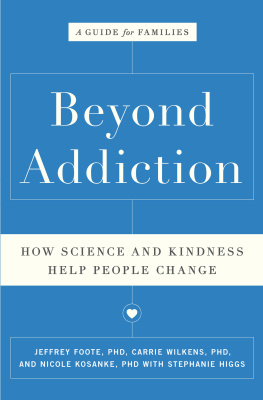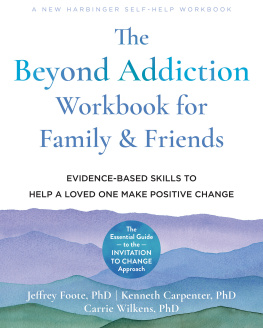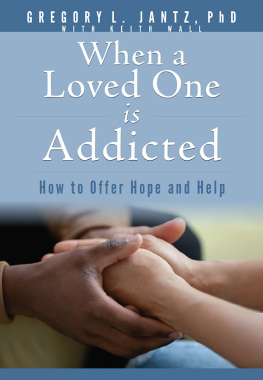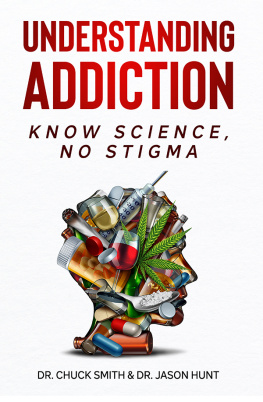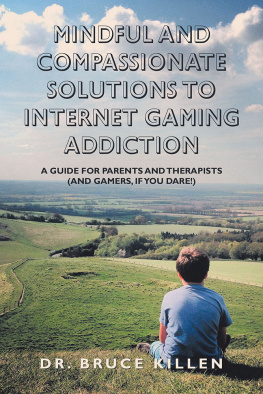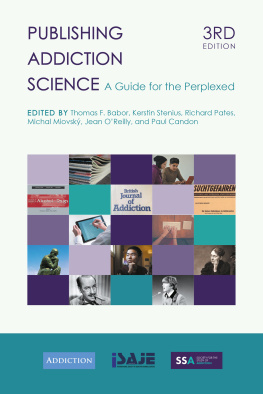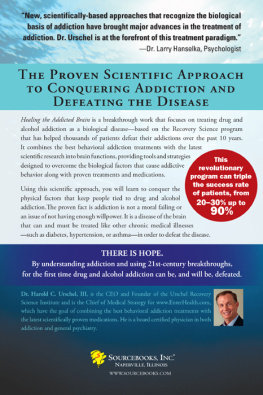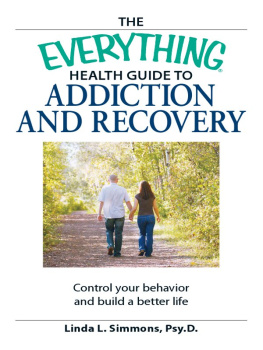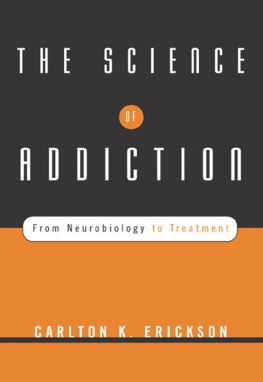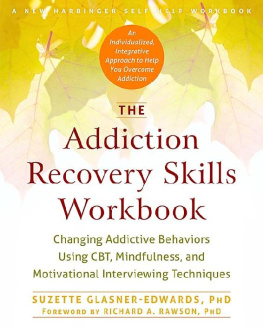Thank you for downloading this Scribner eBook.
Join our mailing list and get updates on new releases, deals, bonus content and other great books from Scribner and Simon & Schuster.
C LICK H ERE T O S IGN U P
or visit us online to sign up at
eBookNews.SimonandSchuster.com
We hope you enjoyed reading this Scribner eBook.
Join our mailing list and get updates on new releases, deals, bonus content and other great books from Scribner and Simon & Schuster.
C LICK H ERE T O S IGN U P
or visit us online to sign up at
eBookNews.SimonandSchuster.com
Contents
For everyone who is hoping and working for change.
In a gentle way, you can shake the world.
MAHATMA GANDHI
Foreword
It is with the greatest pleasure that we write this preface. Jane and I have known and worked for more than a decade with the directors and staff of the Center for Motivation and Change (CMC), and we have conducted workshops and staff trainings in CRAFT (Community Reinforcement and Family Training) at CMC with Jeff Foote. The first workshop drew an international audience from three continents. CMCs absolute commitment to change the way family treatment is done, and their determination to do whatever it takes, are unsurpassed, and it is also significant that CMC had been using and promoting evidenced-based treatments long before they became popular.
CMC has embraced the task of working with familiesnot just the individual with the substance use problem but the whole family. Many treatment centers in the United States still use old-school treatments that have not been tested by rigorous randomized clinical trials, whereas CMC has developed several programs for substance-abusing individuals and their families based on solid evidence-based treatments. Without question, CMC has been innovative and progressive in their evaluation and treatment of people suffering either directly or indirectly (i.e., family members) from substance use.
I can personally attest to the pain caused by having a family member who abuses alcohol or drugs. I came from one of those families and I understand the anguish firsthand. As my fathers out-of-control drinking continued, I also witnessed my mother suffering incredible pain. As a result of her frustrations, my brother and I also suffered. My mother passed away at the young age of forty-five. It is because of this troubled history that I carved out my path of investigating humane and positive ways to help substance users and family members. My early years in the field brought me to the stark reality that there was no reliable or reasonable treatment for family members at the time. Family Days at treatment centers typically centered around viewing a film on the effects of alcohol.
The addiction field as a whole has struggled to find effective ways to help distraught family members. During my long tenure in the substance abuse field, I developed a program called Community Reinforcement and Family Training. CRAFT is designed specifically to empower family members. It teaches them how to take control of their lives, and as part of this process to change their interactions with the substance user in ways that promote positive behavioral change. Clinical trials on CRAFT have shown that when family members use these positive, supportive, nonconfrontational techniques, not only do they find ways to get their loved one into treatment, but the family members themselves feel betterspecifically showing decreases in depression, anger, anxiety, and medical problemswhen they participate in CRAFT. Clinical trials also have shown that the family members benefit emotionally even if their loved one does not enter treatment.
The Center for Motivation and Change has taken CRAFT, motivational interviewing, and cognitive behavioral therapy and woven them into a powerful treatment system under the expert guidance of its directors, Drs. Jeff Foote and Carrie Wilkens. Jane and I became fans of CMC years ago, due to their kindred spirit and their commitment to doing the right thing. It is a true honor to know and work with such dedicated people.
We believe this book will have a huge positive impact on the addiction community, beginning with therapists and researchers. But we also hope it opens the eyes of directors, legislators, and families to a novel way of thinking about how to approach and address the familys substance use problem.
Robert J. Meyers, PhD, Emeritus Associate Research Professor of Psychology, University of New Mexico, and Director of Robert J. Meyers, PhD & Associates
Jane Ellen Smith, PhD, Professor and Chair, Department of Psychology, University of New Mexico, Albuquerque, NM
Where to Start
INTRODUCTION
Hope in Hell
To accept the things you cannot change... to change the things you can... to know the difference.
Adapted from the AA motto
This book is different.
You may have picked up this book in desperation, you may be afraid nothing will help, but we are optimistic we can change that.
Maybe your husbands drinking increased after the kids went to college and you worry its only going to get worse. Maybe your grown son doesnt return calls anymore, seems uninterested in working, and smokes a lot of pot. Maybe your daughter has stopped eating, or maybe she cant seem to stop. Maybe your elderly mom sounds slurry every time you call her in the evening, but never remembers it the next day. Maybe your brother is back in treatment, again, for methamphetamine abuse. Substance and compulsive behavior problemscan take endless shapes and vary in terms of severity, scariness, and heartbreak.
Families come to our program every day with these and many other serious problems. Still we are optimistic. We dont mean that maybe youll be lucky or that its no big deal. We are optimistic because we know change is possible. If your own optimism has gotten shaky in recent months or years, we invite you to borrow ours for now. Take this book like a steadying hand. And know that you can make a difference.
As researchers and clinicians, weve seen the evidence over the past forty years that families and friends make a difference in helping someone who struggles with drinking, drugs, eating, or other compulsive behaviors. Often, it is the critical difference.
We also know that people get better, and there are many reasons to be hopeful. However, youre probably more familiar with the popular notions of intractable character defects and progressive, chronic disease. Theres widespread pessimism about the possibility of real change. Addiction can be terribleat times life-threatening. But change is possible, and there are clear paths leading to it.
This is why, ten years ago, we created a new treatment program, the Center for Motivation and Change (CMC), in New York City, where we are part of a revolution in addiction treatment based on evidence and on a new model for change.
We built our practice on optimism, not because it made us feel good, though it does, but because it works. We base our optimism, our clinical practice, and now this book on forty years of well-documented research on how substances and other compulsive behaviors affect people, why people use them, and how and why people stop self-destructive behavior and start on paths toward health and happiness. In turn, our experiences with thousands of clients bear out the research findings.
There is in fact a science of change .
Every day at CMC we see clients put it into practice, using the knowledge, attitudes, and skills youll find in this book. It takes time, and it is not usually a straight or smooth path. But it is a better way. Things can and do change. The process already started when you picked up this book.
Next page
